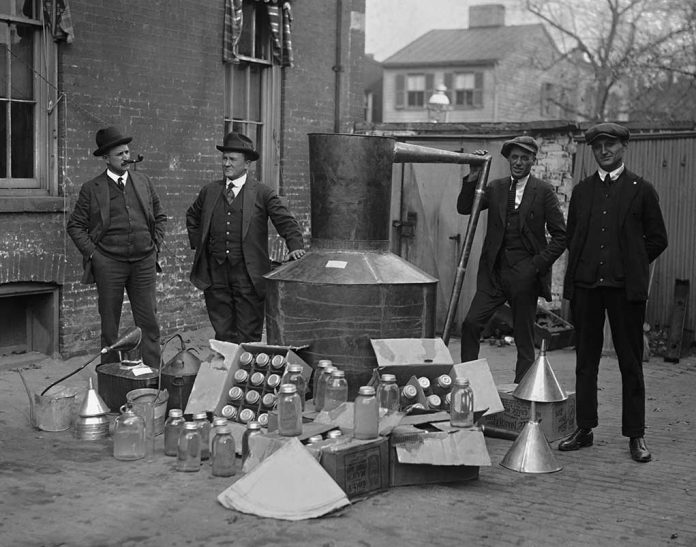
(ConservativeJournal.org) – Nowadays, most Americans think nothing special of being able to enjoy a drink or two. Just over 100 years ago, however, the US government amended our Constitution to make illegal the production, transport, and sale of alcohol. These rules weren’t reversed for 14 years. This is just a portion of the interesting history of prohibition
Background to the 18th Amendment
The latter part of the 19th century brought a growing push for prohibition legislation. Drunkenness was considered a serious issue in the strictly religious society of the day. A number of individual states, including Maine and Massachusetts, had introduced prohibition measures before the outbreak of the Civil War in 1861.
Women were particularly prominent in the temperance movement. Wives were more reliant on their husbands at the time and had difficult lives if their partners drank too much.
Members of Congress who favored banning alcohol were known as “dry” representatives. By 1916, they outnumbered “wet” representatives 2 to 1, and introduced the 18th Amendment to the Constitution. In January 1920, when it passed into law, the Amendment banned the production, distribution, and sale of alcohol across the United States.
The 21st Amendment and the Reversal of Prohibition
Prohibition was much more difficult to enforce than its proponents had envisaged. In urban areas, Mafia groups and other organized crime gangs started running the “bootleg” liquor market, brewing their own alcohol and selling it to “speakeasies.” Despite the laws against it, alcohol consumption remained commonplace, and prostitution and gambling also became more popular in the 1920s.
Opponents of Prohibition pointed out that it had given rise to the kind of moral depravity it had been introduced to avoid. Franklin D. Roosevelt’s 1932 presidential election campaign promised to reintroduce the legal sale and supply of alcohol; when he won, the end of Prohibition seemed inevitable.
Congress introduced the 21st Amendment in February 1933, aiming to repeal the 18th Amendment and its supporting legislation. States held individual conventions on the proposition, and it passed in December of the same year when Utah became the 36th state to ratify the proposal. States were still allowed to set out their own rules on alcohol after this. Mississippi was the last state to do away with prohibition legislation; it remained in force there until 1966.
The 21st Amendment remains the only Amendment to have been passed by state conventions rather than state legislatures, and the only Amendment to reverse a previous one.
Copyright 2022, ConservativeJournal.org














